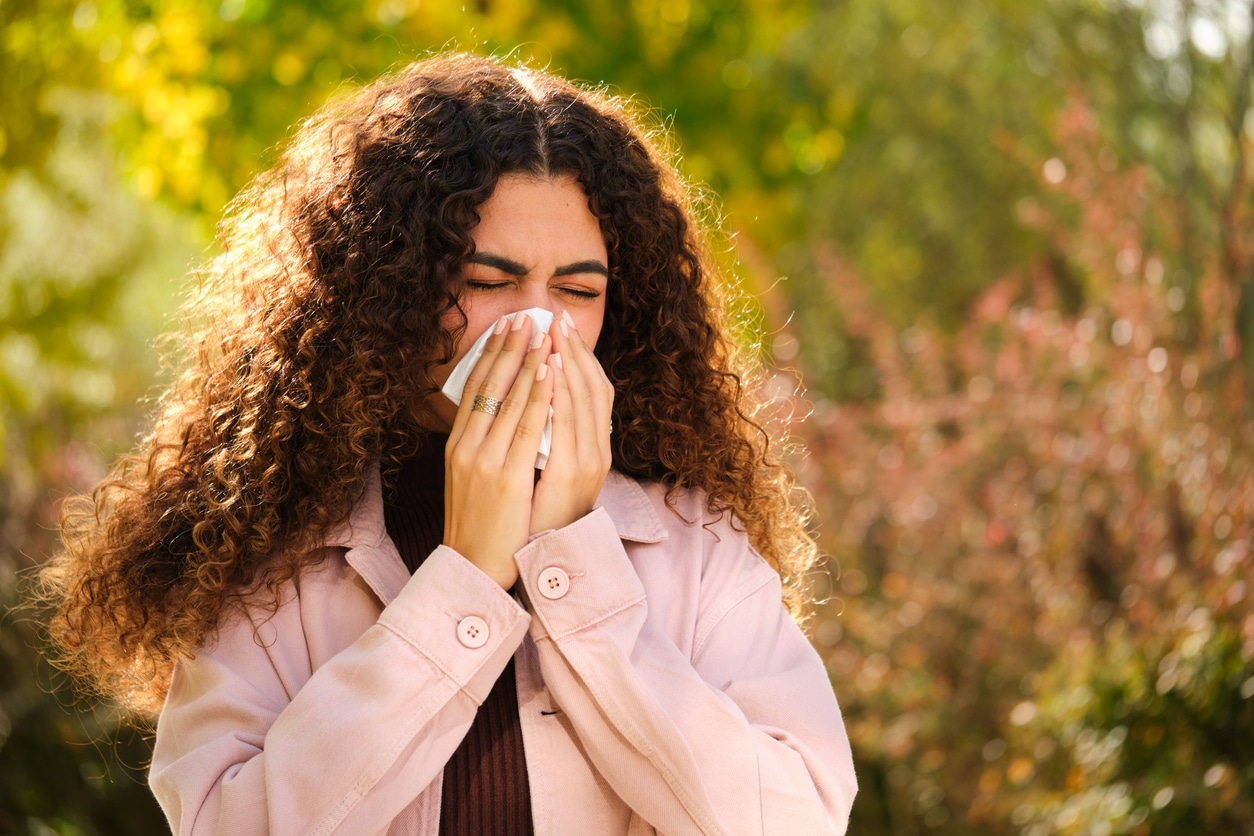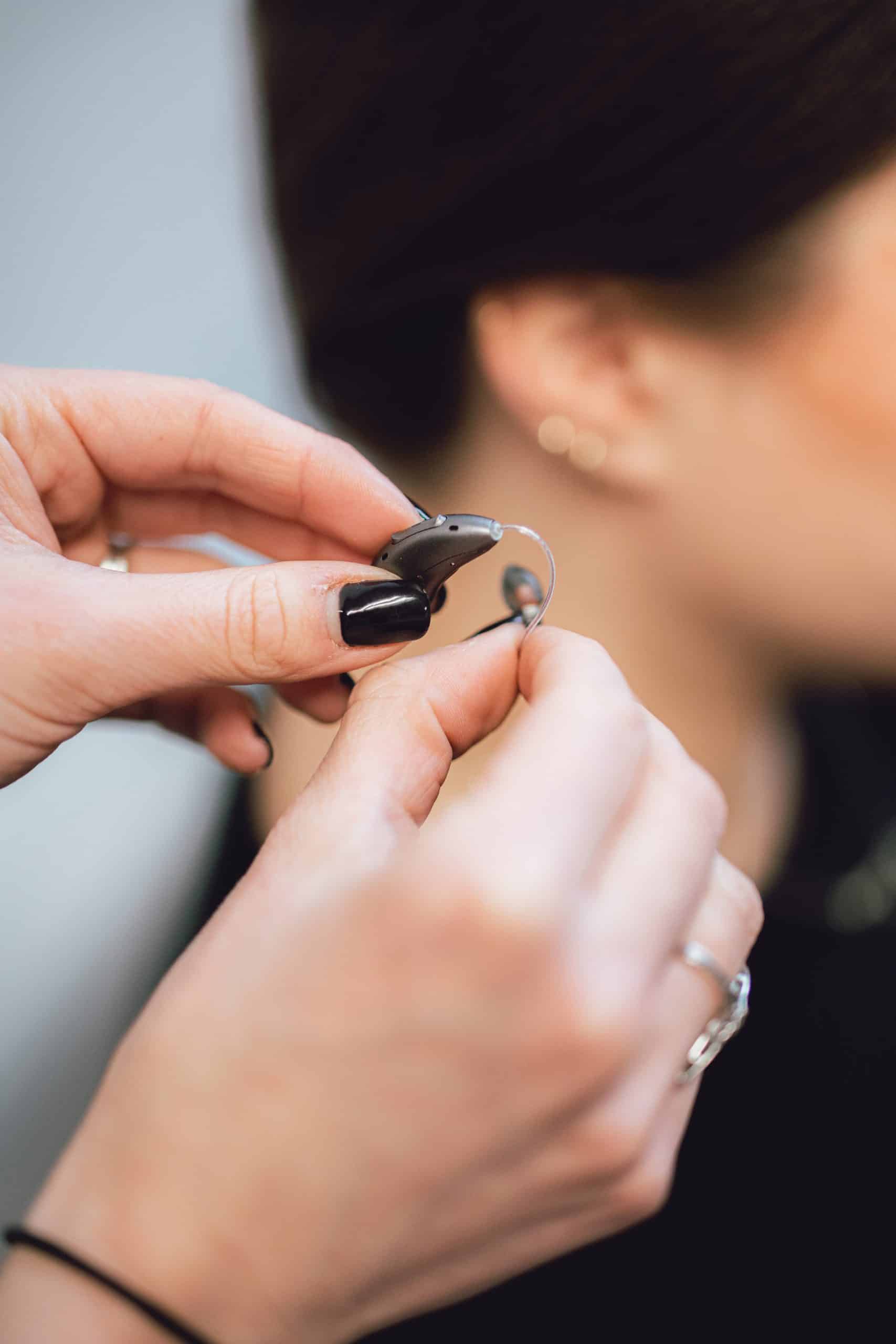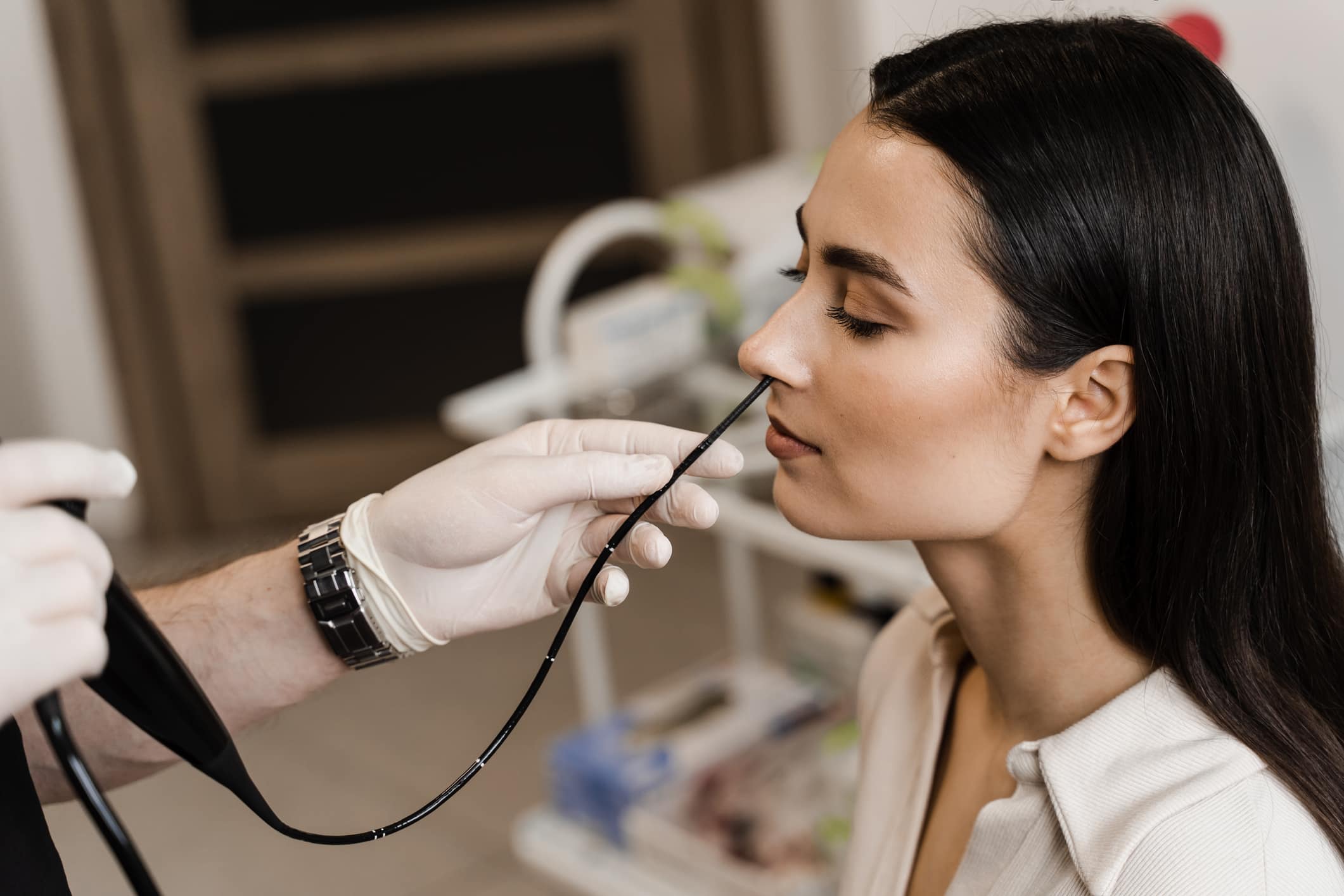Every year, more than 50 million Americans find themselves battling allergies, and spring marks the…

Why Does Everything Sound Weird? The Impact of Noise-Induced Hearing Loss on Young Adults
Most of the time, when people think about hearing loss, they associate it with old age and think of it as a condition that simply develops with time. The truth is that anyone can experience hearing loss at any point in their lives, and an increasingly common source is noise-induced hearing loss, especially among young adults.
According to the World Health Organization, more than 1 billion teens and young adults are at risk of preventable hearing loss due to noise exposure. And the cause behind this issue isn’t a mystery.
Why More Young Adults Have Noise-Induced Hearing Loss
Look around any public space, and you will notice many people wearing headphones, earphones, or earbuds. They are either listening to music, talking to someone, or playing on their phones. These activities may seem like an innocuous part of modern life, but compounded, they can cause serious damage.
Constantly playing electronic games and the frequent use of headphones, earphones, and earbuds constitute long-term noise exposure—a leading cause of hearing loss.
Are There Other Common Causes of Hearing Loss?
Whether using headphones or not, exposure to high volume levels may be detrimental to one’s ears. Televisions and video games played at loud volumes or with sudden, loud sound effects are a common cause of concern.
It also doesn’t always have to be long-term noise exposure. Sometimes, a single loud blast could have a painful auditory effect. A 90-decibel sound is capable of causing hearing damage. Anything louder can be worse.
How Loud is Too Loud?
Here are some examples of damaging noise from commonly used household items and the surroundings:
- Lawn mower, hair dryer – 90 decibels
- Siren on an emergency vehicle – 120 decibels
- Car race, jet engine – 130 decibels
- Airplane takeoff – 140 decibels
- Fireworks – 145 decibels
- Shotgun blast – 150 decibels
Repeated, prolonged exposure to these noises and other high-volumes will inevitably have a detrimental effect over time.
When Should You See an Audiologist?
You should see an audiologist at least once every decade. However, if you are experiencing ear issues and some hearing loss, you should visit one immediately.
Here are some signs that should be treated as urgent:
Muffled or Distorted Hearing
When you hear a loud blast, chances are you’ll experience muffled hearing immediately after. However, if you have muffled hearing for an extended period of time, you should visit an audiologist as soon as possible.
Difficulty Hearing
Whether you are communicating in person or through a mobile device, if you have difficulty hearing or understanding the person talking, then you may have a hearing issue. It’s not just conversations, though. You may also have issues with hearing alarms, doorbells, and even animal sounds. A professional audiologist can assess your concerns and your level of hearing loss, if any.
Tinnitus
Tinnitus refers to the ringing in the ears that sometimes comes with pain. Experts can help you manage such a condition.
Preventive Measures
Sometimes, you don’t need to experience these symptoms to visit a hearing specialist. You may see one immediately after experiencing a loud blast or after long exposure to noise with high volume levels. As many would say, prevention is always better than cure.
What You Can Do To Prevent Hearing Loss
Your hearing affects communication and safety. If you can’t hear well, then you can’t communicate well. If you can’t hear alarms, honking cars, and people giving you warnings, you’re also much more likely to miss signs of danger.
Protect your ears and hearing with some of these hearing loss prevention tips:
1. Don’t Use Headphones or Similar Devices for Long Periods
Headphones, earphones, and earbuds are wonderful inventions, but extended use can result in permanent hearing loss. Don’t use these audio accessories for a long time, or you could damage your hearing.
2. Use Hearing Protection When Expecting Loud Noises
Two of the most common places to see hearing protection are shooting ranges and construction sites, but they shouldn’t be the only places. People should normalize wearing hearing protection or taking precautions when they expect to be in intensely noisy areas, such as at race tracks, concerts, or airports.
3. Turn Down the Volume of Electronics
You don’t need to watch TV, listen to music, or play games at high volumes. Around 60 decibels would be good enough for a safe and comfortable hearing experience. Many devices and games even offer noise customization options to help bring up the volume of quieter sounds so they’re easier to hear and lower the volume of loud noises so they’re less detrimental.
Prevent Hearing Loss at an Early Age With ExcelENT
In most cases, noise-induced hearing loss happens because of preventable situations. Anyone can improve their hearing health by listening to audio at appropriate volume levels, and we encourage you to speak frankly with friends and loved ones about it. For personalized diagnosis and preventative care, visit the ear, nose, and throat experts at ExcelENT in Alabama.
Schedule Your Preventative Hearing Loss Appointment Today
Make sure your hearing stays excellent with ExcelENT in Alabama! Schedule an appointment here or call (205) 651-8764. You can also visit our clinics in Hoover and Homewood.


